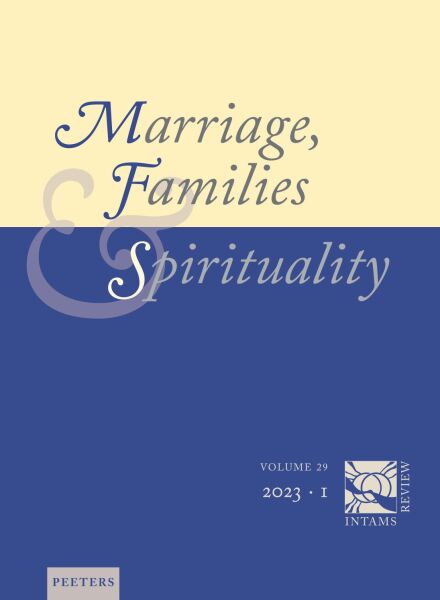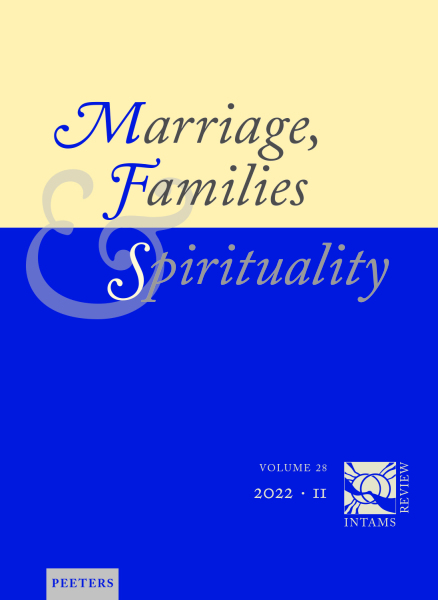
Challenges for the Church in the field of Marriage and Families
24/01/2024
Marriage, Families & Spirituality, vol. 29/2 (2023). insightful contributions to the Challenges for the Church in the field of Marriage and Families. With Pope Francis a new spirit has emerged in the Catholic Church after a long period of deadlock and lethary. Retrieving the often neglected or even ignored seeds of Vatican II and settling essential issues which have not yet been addressed are some of his main tasks. Questions of ecclesiology, especially the concept and structure of the Church in its theological and practical applications, are certainly of prime importance. But items of marriage and sexuality are no less on the agenda. The articles of this issue, at first sight a compilation of loose papers, can be read in this context: they provide modest, but helpful, contributions to the challenges which the Church is facing. Read the Editorial See the Table of Contents and the summaries of the articles

Pastoral Practices, Life Experience, and Moral Theology: Amoris laetitia Between New Opportunities and New Paths
10/04/2023
Vol. 29/1 (2023)Special Theme Issue: International Conference on Moral Theology: Pastoral Practices, Life Experience, and Moral Theology: Amoris laetitia Between New Opportunities and New Paths. This issue publishes a number of lectures given at a conference in Rome, organized and led by the John Paul II Pontifical Theological Institute for the Study of Marriage and the Family and the Gregorian University, under the guidance of Don Maurizio Chiodi, Professor Miguel Yañez, and the newly nominated rector of the John Paul II Institute, Professor Msgr. Philippe Bordeyne. It took place from 11 to 14 May 2022, and INTAMS was an interested participant. Read the Editorial See the Table of Contents and the summaries of the articles

Church, Together on the Synodal Journey
01/03/2023
MFS 28/2 (2022): This theme issue is dedicated to the topic of synodality. It explores the question of how and where believers in the church are journeying together, what participation means theologically, and what the mission of baptized Christians can be in different areas. The contributions reflect this in different ways. In particular, they relate in some way to the work of INTAMS. In addition to fundamental issues, they also focus on specific topics. Full text of the Editorial by Thomas Knieps-Port le Roi, Editor, and Jochen Sautermeister. FREE DOWNLOAD of the article by Peter Hünermann: Synodality in the Life and Mission of the Church: A Critical Investigation. See the full Table of Contents





